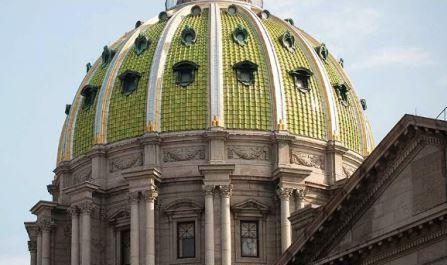HARRISBURG – On Thursday, the House Appropriations Committee amended Senate Bill 109 to include additional COVID-19 relief for small businesses.
The legislation, which appropriates $197 million in educational grants, $570 million for rental and utility assistance, and $145 million for grants to the restaurant and hospitality industry, was amended to exempt income received from the federal Paycheck Protection Program (PPP) from taxation under the state’s Personal Income Tax (PIT).
“Many small business owners were shocked to learn that they would end up owing state taxes on PPP money they received to continue paying their employees,” said Appropriations Chairman Stan Saylor (R-York).
“Our antiquated tax code already exempts PPP money from taxation for large corporations. We need to help our small businesses, that were most impacted by the governor’s shut down orders.”
Similar legislation was sponsored by Rep. George Dunbar (R-Westmoreland) last year. House Bill 2497 was passed by the Pennsylvania House of Representatives on June 9, 2020, by a vote of 201-1.
“I’m grateful to my friend and colleague, Rep. Dunbar, who recognized this issue early on and has been working to find a solution for our small businesses,” Saylor said. “I also want to thank Senate Majority Leader Kim Ward for working with us to get this across the finish line.”
Congress exempted PPP income from federal taxation in the Consolidated Appropriations Act of 2021 that was passed by Congress on Dec. 21, 2020.
Because the Corporate Net Income Tax (CNIT) conforms to the federal tax base, PPP income is not taxable under Pennsylvania’s CNIT.
However, the PIT does not conform to the federal individual income tax base, and therefor PPP income is not automatically excluded from the PIT. Approximately 80 percent of businesses in Pennsylvania pay the PIT.
The Pennsylvania House of Representatives is expected to pass Senate Bill 109 on Friday, at which point it will return to the Senate for concurrence.
